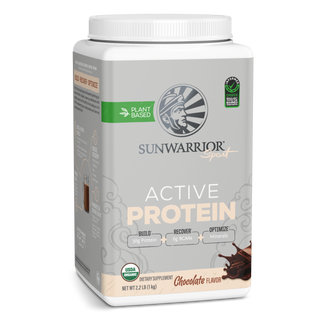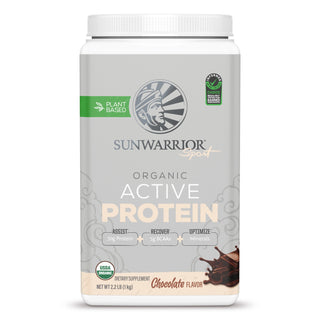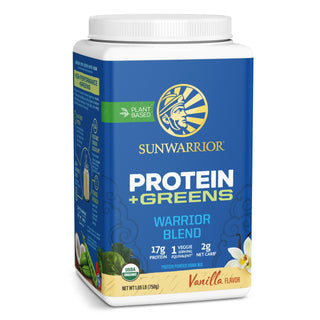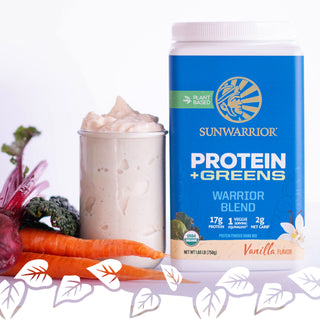Does protein powder expire? Learn how long it lasts, how to store it properly, and if expired protein powder is safe to use. Stay fresh and fuel your fitness!
Protein powder is a go-to supplement for athletes, fitness lovers, and anyone looking to boost their daily protein intake. But what happens when you find an old tub of protein powder in your pantry? Does it expire? And more importantly, is it still safe to use? Understanding the shelf life of protein powder and how to store it properly can help you get the most out of your supplement while avoiding any unpleasant surprises. Let’s dive into everything you need to know!
How Long Does Protein Powder Last?
Depending on the brand, protein powder typically has a shelf life of 12 to 24 months from the manufacturing date when stored properly. However, this varies depending on the type of protein and whether it contains additional ingredients like flavorings, sweeteners, or preservatives.
- Whey and Casein Protein – Typically lasts 12 to 18 months.
- Plant-Based Protein (Pea, Rice, Hemp, etc.) – Generally lasts 18 to 24 months, as it lacks dairy-based ingredients that spoil faster.
- Collagen and Egg White Protein – Can last up to 24 months due to their stability and lack of moisture.
Factors Affecting the Shelf Life of Protein Powder

Several factors can impact how long protein powder remains safe and effective:
- Storage Conditions – Protein powder should be kept in a cool, dry place, away from direct sunlight and humidity. Exposure to heat and moisture can lead to spoilage.
- Packaging – Protein powders stored in airtight, resealable containers tend to last longer than those kept in bags or loosely sealed containers.
- Ingredients – Additives like dairy and oils can shorten the lifespan of a protein powder.
- Contamination – Using a wet scoop or leaving the container open can introduce moisture and bacteria, accelerating spoilage.
Signs Your Protein Powder Has Expired
To determine if your protein powder is still safe to use, look for these signs:
- Foul smell – A rancid or sour odor suggests spoilage.
- Clumping or moisture buildup – Indicates mold growth.
- Change in taste – A stale or bitter taste means degradation.
- Discoloration – Dark spots or unusual hues suggest contamination.
What Happens If You Use Expired Protein Powder?
While protein powder does not necessarily “go bad” in the way fresh dairy or meat does, it can degrade over time. Here’s what might happen:
- Loss of Nutritional Value – The protein content may decrease as the powder breaks down.
- Taste and Texture Changes – Expired protein powder may develop an off taste, a stale smell, or a clumpy texture.
- Digestive Issues – If moisture or bacteria have entered the container, consuming expired powder could lead to stomach discomfort, bloating, or foodborne illness.
If your protein powder smells rancid, tastes bad, or has visible mold or clumps, it’s best to toss it.
Does Expired Protein Powder Lose Its Nutritional Value?
Yes, protein powder expire over time, leading to decreased amino acid content. While it may not harm you immediately, the protein’s potency diminishes, reducing its benefits for muscle growth and recovery.
Can Expired Protein Powder Still Help with Muscle Growth?
If the powder has just slightly passed the protein powder expire date and has been stored correctly, it may still provide some protein content. However, a significant degradation in amino acids will reduce its effectiveness for muscle growth.
How Long After Expiration Can I Use Protein Powder?
If stored properly, protein powder can still be safe to use for a few months past its expiration date, but this depends on its condition. If the texture, smell, and taste seem normal, it’s likely still usable. However, if it’s more than six months to a year past the expiration date, it’s best to err on the side of caution and replace it.
Can I Use 2-Year-Old Protein Powder?
A 2-year-old protein powder can be fine if it is two years from its manufacturing date and still within its best-by date. However, it will depend on what ingredients were used to create the product, how it was stored, and if it had already been opened.
How Long Does Protein Powder Last After Opening?
Once opened, protein powder is best used within 6 to 12 months, even if the expiration date is further out. Exposure to air, humidity, and potential contamination can speed up its deterioration. Keeping the lid tightly sealed and storing it in a cool, dry place will help extend its freshness.
How Long Do Mixed Protein Shakes Last?
Once mixed with water, milk, or any liquid, protein shakes have a much shorter shelf life. Here’s how long you can safely keep them:
- Refrigerated – Can last 24 hours, but may separate or change texture. Shake well before drinking.
- Frozen – Can last up to 3 months, but should be thawed in the fridge and shaken before use.
Leaving a protein shake at room temperature for too long can lead to bacterial growth, making it unsafe to drink.
What Are the Risks of Consuming Rancid Protein Powder?
Using expired protein powder can lead to:
- Bacterial growth – Improper storage fosters bacteria and mold.
- Upset stomach – Stale powder can cause gas, bloating, and nausea.
- Toxic compounds – Breakdown of fats may create harmful substances.
How to Properly Sore Protein Powder
To maximize the shelf life of your protein powder, follow these storage tips:
-
Keep it in a cool, dry place – Store protein powder in a pantry, cupboard, or any spot away from heat and humidity.
-
Seal it tightly – Always close the lid or resealable bag securely after each use.
-
Use a dry scoop – Avoid introducing moisture by keeping wet utensils out of the container.
- Avoid extreme temperatures – Storing protein powder near a stove, in a hot car, or in a freezer can affect its quality.
Smell Test
Yes, protein powder does expire, but it can often be used a few months past its expiration date if stored correctly. However, if you notice an off smell, clumping, or mold, it’s time to toss it. Keeping protein powder in an airtight container in a cool, dry place will help extend its shelf life. And when in doubt, fresh is always best!
Is Protein Powder Right for Me?

Now that we’ve covered how long protein powder lasts and how to store it properly, you might be wondering: Is protein powder even right for me?
Protein powder is a convenient and effective way to supplement your diet, but it’s not necessary for everyone. Here are some factors to consider when deciding if you should incorporate it into your routine:
Who Benefits from Protein Powder?
- Athletes & Fitness Enthusiasts – If you work out regularly, especially with resistance training, your muscles need protein to recover and grow. Protein powder is an easy way to hit your daily intake goals.
- Vegans & Vegetarians – Plant-based diets can sometimes lack high-protein food sources. Protein powder (like Sunwarrior’s Warrior Blend and Active Protein) can help bridge the gap.
- Busy Individuals – If you struggle to cook balanced meals, a protein shake like Sunwarrior’s Lean Superfood Shake can be a quick and nutritious solution to keep you fueled throughout the day.
- Older Adults – As we age, protein intake becomes more important for maintaining muscle mass and overall health. Protein powder can help ensure you’re getting enough.
- Pregnant or Breastfeeding Individuals – Protein is crucial during pregnancy and lactation, though it’s always best to consult a healthcare provider before adding supplements.
Do Different Protein Types Expire at Different Rates?
Yes, protein powders such as plant-based protein powder tend to have a longer shelf life than dairy-based ones. Whey and casein, due to their dairy content, may expire faster.
Does Protein Powder Expire Faster in Hot or Humid Conditions?
Absolutely! Heat and humidity accelerate spoilage. Always store protein powder in a cool, dry place to extend its shelf life.
Can Freezing Extend the Shelf Life of Protein Powder?
While freezing protein powder can help preserve freshness, it may also cause condensation upon thawing, leading to clumping. It’s best to store it in an airtight container away from moisture.
How Much Protein Do You Really Need?
The recommended daily protein intake varies by activity level and body weight:
- Sedentary individuals: ~0.36 grams per pound (0.8g/kg) of body weight
- Active individuals: ~0.5-0.75 grams per pound (1.2-1.6g/kg)
- Athletes & strength trainers: ~0.75-1.0 grams per pound (1.6-2.2g/kg)
If you struggle to reach your protein needs through whole foods alone, protein powder can be a helpful tool, but it should complement a balanced diet rather than replace real food.
Protein powder can be a great supplement for many people, but it’s not a one-size-fits-all. Get a protein that fits your specific needs. Do you need a protein with greens? One that is geared toward collagen building? One for building muscle? Find a protein that does what you need it to do.
If you’re unsure how to choose, consider your dietary needs, lifestyle, and health goals. When used correctly, protein powder can be a convenient and effective way to support your nutrition and fitness journey—just make sure you’re storing it properly. And use it before it expires so that you can enjoy fresher flavor and robust nutrients. Why wait to get great health benefits?
Conclusion
Protein powder expires, but proper storage can extend its usability. Always check for signs of spoilage before consuming, and when in doubt, fresh is best! Looking for a reliable protein source?
Protein powder can be a great supplement for many people, but it’s not a one-size-fits-all. Get a protein that fits your specific needs. Do you need a protein with greens? One that is geared toward collagen building? One for building muscle? Find a protein that does what you need it to do.
Check out Sunwarrior for high-quality, plant-based protein powder to fuel your fitness journey!
FAQs
Does protein powder go bad?
Yes, protein powder does expire over time, gradually losing its potency and nutritional value. Proper storage can help extend its freshness, but consuming it past its expiration date can be risky.
Is expired protein powder safe?
If stored correctly in a cool, dry place, it may still be safe for a short period after its expiration date. However, if you notice an off smell, clumping, or discoloration, it's best to discard it.
Do protein shakes expire if unopened?
Yes, unopened protein shakes typically last between 6 to 12 months, depending on the brand and ingredients. Always check the expiration date and ensure proper storage to maintain quality.
What is the typical shelf life of protein powder?
Most protein powders have a shelf life of 12 to 24 months. However, factors like packaging, storage conditions, and ingredients can impact their longevity.
How should I store protein powder to extend its shelf life?
To keep protein powder fresh, store it in an airtight container in a cool, dry place away from moisture and direct sunlight. Avoid leaving the scoop inside, as it can introduce bacteria.
Can expired protein powder make you sick?
Yes, if expired protein powder has been exposed to bacteria or moisture, it can develop mold or harmful microbes that may cause foodborne illnesses. Always check for signs of spoilage before consuming.
Does the type of protein powder affect its shelf life?
Yes! Plant-based protein powder generally lasts longer than dairy-based powders like whey due to the absence of perishable ingredients. Whey and casein proteins may spoil faster due to their dairy content.
Does protein powder lose its effectiveness over time?
Yes, as protein powder ages, its amino acid profile may degrade, reducing its nutritional value. While it may still provide some protein, it won’t be as beneficial as a fresh batch.
Can protein powder grow bacteria or mold?
Yes, if exposed to moisture or an unclean scoop, protein powder can develop bacteria or mold. Always use a dry scoop and store the powder in a dry place to prevent contamination.
What happens if you use protein powder past its expiration date?
If stored properly, protein powder might still be safe to use past its expiration date, but its taste, texture, and nutritional value may decline. If it smells rancid or has an odd texture, it’s best to discard it.
Why does my protein powder smell or taste different?
Changes in smell or taste could indicate that protein powder has gone stale, rancid, or has bacterial contamination. If it smells off or tastes bitter, it’s best to avoid using it.
Can refrigeration extend the shelf life of protein powder?
Refrigeration isn’t necessary and can sometimes cause condensation inside the container, leading to clumping and spoilage. It’s better to store protein powder in a cool, dry place.
Is clumping a sign that protein powder has gone bad?
Yes, clumping often occurs due to moisture exposure, which can reduce protein powder’s quality and lead to potential spoilage. If it forms hard lumps or smells odd, it's best to discard it.
Do plant-based and whey protein powders have different expiration timelines?
Yes! Plant-based protein powder generally has a longer shelf life than whey due to the absence of dairy. Whey-based proteins are more prone to spoilage if not stored properly.
Can I use expired protein powder for baking or cooking?
If there are no visible signs of spoilage, expired protein powder can still be used in baked goods or smoothies. However, its nutritional value and taste may not be as good as fresh powder.
Does egg white powder expire?
Yes, egg white powder has an expiration date but typically lasts longer than whey protein, up to 24 months. Always store it in a dry place and check for signs of spoilage before use.
Is it safe to use protein powder that is 2 years out of date?
Using protein powder that is two years past its expiration date is risky, as it may have lost its nutritional benefits and could be contaminated. If it smells off or has texture changes, it's best to throw it away.
























COMMENTS
rosalin
It was very good information about the expiration date of protein powder.